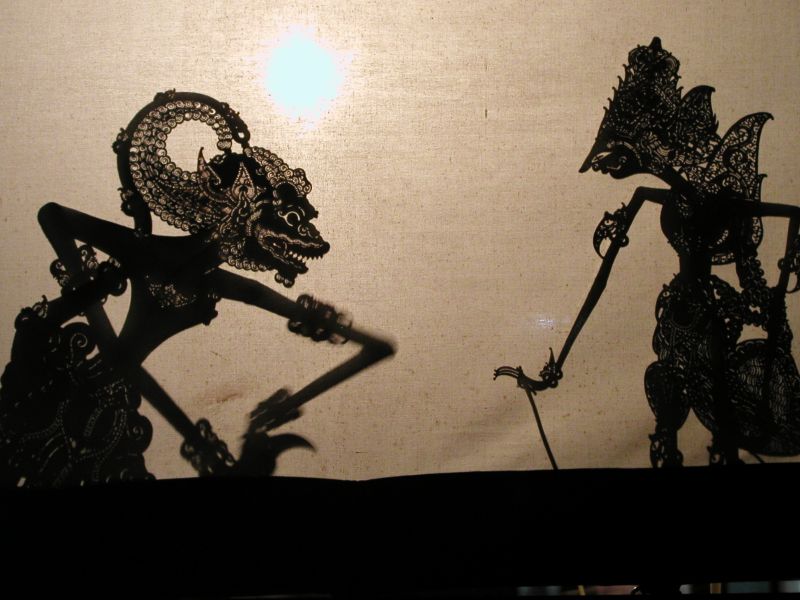Saturday, May 4, 2013
Wayang (影人形)
Am I just poorly imitating shadows of a history long gone?
Sometimes I think that I'm just doing budō (武道) or bujutsu (武術) without understanding the context pf what it was and or what it's supposed to be; "making it up as we go along," they say.
Why do I say this? I say this because I do think that nowadays budō has been taken out of context and the reason is that we are living a relatively comfortable life and budō may not be so relevant to our daily life anymore. So what do we do? We modify it to conform to what we are comfortable with.
It is undeniable that bujutsu and its philosophical counterpart, budō, was born out of warfare and violence therefore it is also important to understand its culture and history. This is the part many forget, don't know, or don't care and end up having a skewed perception of budō.
I always say that there is an evolution to budō and we do need to understand the process, not just what we see/hear/feel/think what the end product is. The history of violence is undeniable, bujutsu/budō was forged in battle, quenched in blood, and tempered by will, things that many so called practioners get to see.
I am not criticizing anybody, just merely stating my observation. I am not saying it is wrong to practice martial arts the way people do nowadays as long as they understand the context and the purpose of their practice and not have any illusions of grandeur. In the the modern life, budō and bujutsu have become irrelevant. People do not need to pick up a sword and go to battles everyday.
Then again, I may be unfair to say that because there are still war torn countries and areas as we speak, who people when they sleep at night may not have a chance to wake up the next morning. Have we ever thought of ourselves in that position? Would our training be relevant then? What is the purpose of our training any way? Self defense?
Self defense is another complex issue. Self defense is not black and white, it is a multitude shades of gray. Violence in this modern civilization is complex as well. Social norms have changed with time, what once was acceptable may no longer be. It is important to understand this and see if our training is also relevant.
Why did I title this blog as "wayang" or shadow puppet? When watching a wayang show, all you see are shadows, black figures over a white screen. The puppet itself is actually an intricate piece of work, how it is made is not as simple as the shadow we see.
In a shadow play, it is not a silent movie, there are music and narration to describe the movement and the story. If you don't understand the language then you won't know the story. As it is in usually Javanese, I don't know as well.
Because I don't know the language or the story, then I start making things up of what the shadow represents and then re-tell this story to others, with a half-assed wayang skill, taking everything out of context. But, as I may be the only one that has seen it from the group I'm showing it to, they believe me and others start doing the same thing.
So what am I saying? It is the question I asked in the beginning of this blog, am I just poorly imitating shadows of a history long gone?
To me, keiko (稽古), tracing the old, is important to understand the context of training, its culture, its history, why it is done the way it's done.
Each exercise and technique has a story to tell, it has a history of how it was developed and even to understand this one may need to have a cultural context of the time.
Tracing/researching this is not everybody, it takes effort, time, and dedication, and some is alright with just imitating shadows. Again, nothing wrong with that, as long as you understand that you are only imitating shadows and may not even be a good imitation either.
It is alright to do martial arts for fun as long as you realize that it is only for fun and may not give you an actual martial skill. Taking things out of context could be fatal because it will give you an illusion of understanding.
One cannot just take the meaning of the kanji "bu" (武) as "stopping the spear" without understanding how to gain the skill rooted in "carrying/using the spear". Taking this kanji out of context would make one think that it philosophically mean pacifism, which clearly it is not... not even close, is not only naïve but could potentially be dangerous.
Subscribe to:
Comments (Atom)

